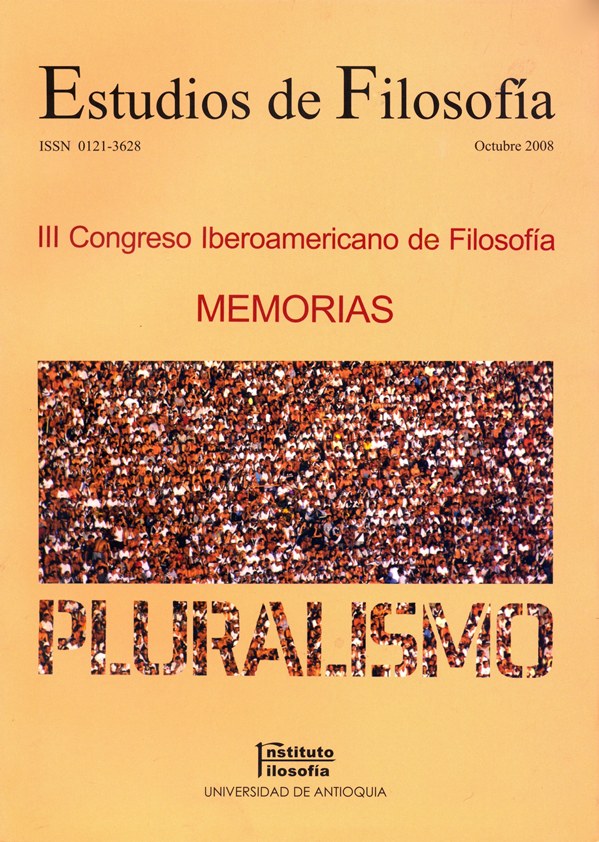Roots, dimensions and limits of the concept of tolerance
DOI:
https://doi.org/10.17533/udea.ef.12863Keywords:
pluralism, tolerance, contractualism, expressivism, fiabilism, cosmopolitismAbstract
I will try to argue that tolerance, although it is essentially linked to the experience of an original conflict, is a parasitic notion, that is, that it always depends on a prior ethical conception from which it derives its strength or positive meaning; and I will advocate for framing the understanding of tolerance within the paradigm of recognition. To do this, I will divide my argument into two parts. In the first place, I will try to select what I consider the main hermeneutical matrices of the notion of tolerance, with the idea of showing the double conceptual game to which I have just alluded, and with the purpose of gradually drawing a conceptual map of the terrain that notion covers. Secondly, I will propose a summary systematic synthesis of the notion of tolerance, describing the features that, it seems to me, are constitutive, among them precisely that of being a parasitic notion. It will not be a mere reconstruction, but rather an attempt to show a propositional sense that makes the defense of this virtue plausible.
Downloads
Downloads
Published
How to Cite
Issue
Section
Categories
License
Copyright (c) 2008 Miguel Giusti

This work is licensed under a Creative Commons Attribution-NonCommercial-ShareAlike 4.0 International License.
Authors who publish with this journal agree to the following terms:
1. The Author retains copyright in the Work, where the term "Work" shall include all digital objects that may result in subsequent electronic publication or distribution.
2. Upon acceptance of the Work, the author shall grant to the Publisher the right of first publication of the Work.
3. The Author shall grant to the Publisher a nonexclusive perpetual right and license to publish, archive, and make accessible the Work in whole or in part in all forms of media now or hereafter known under a Creative Commons Attribution-NoCommercia-ShareAlike (CC BY-NC-SA 4.0), or its equivalent, which, for the avoidance of doubt, allows others to copy, distribute, and transmit the Work under the following conditions: (a) Attribution: Other users must attribute the Work in the manner specified by the author as indicated on the journal Web site;(b) Noncommercial: Other users (including Publisher) may not use this Work for commercial purposes;
4. The Author is able to enter into separate, additional contractual arrangements for the nonexclusive distribution of the journal's published version of the Work (e.g., post it to an institutional repository or publish it in a book), as long as there is provided in the document an acknowledgement of its initial publication in this journal;
5. Authors are permitted, and Estudios de Filosofía promotes, to post online the preprint manuscript of the Work in institutional repositories or on their Websites prior to and during the submission process, as it can lead to productive exchanges, as well as earlier and greater citation of published work (see The Effect of Open Access). Any such posting made before acceptance and publication of the Work is expected be updated upon publication to include a reference to the Estudios de Filosofía's assigned URL to the Article and its final published version in Estudios de Filosofía.















